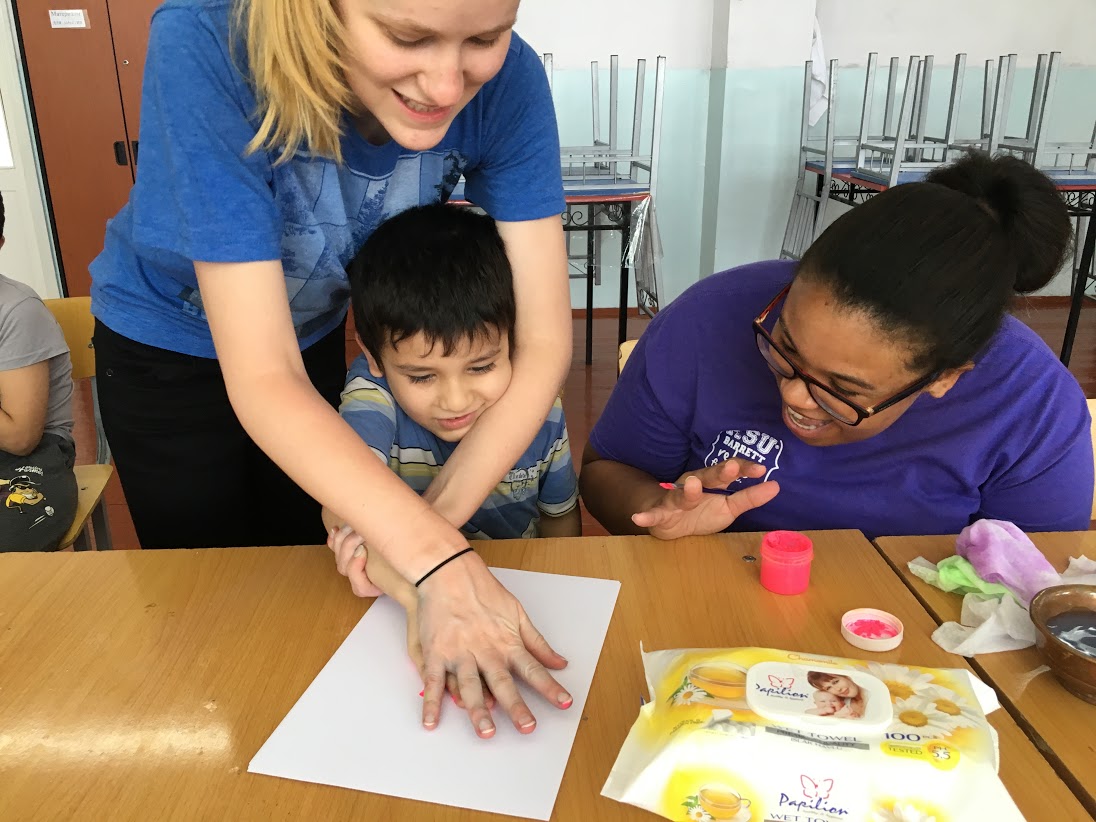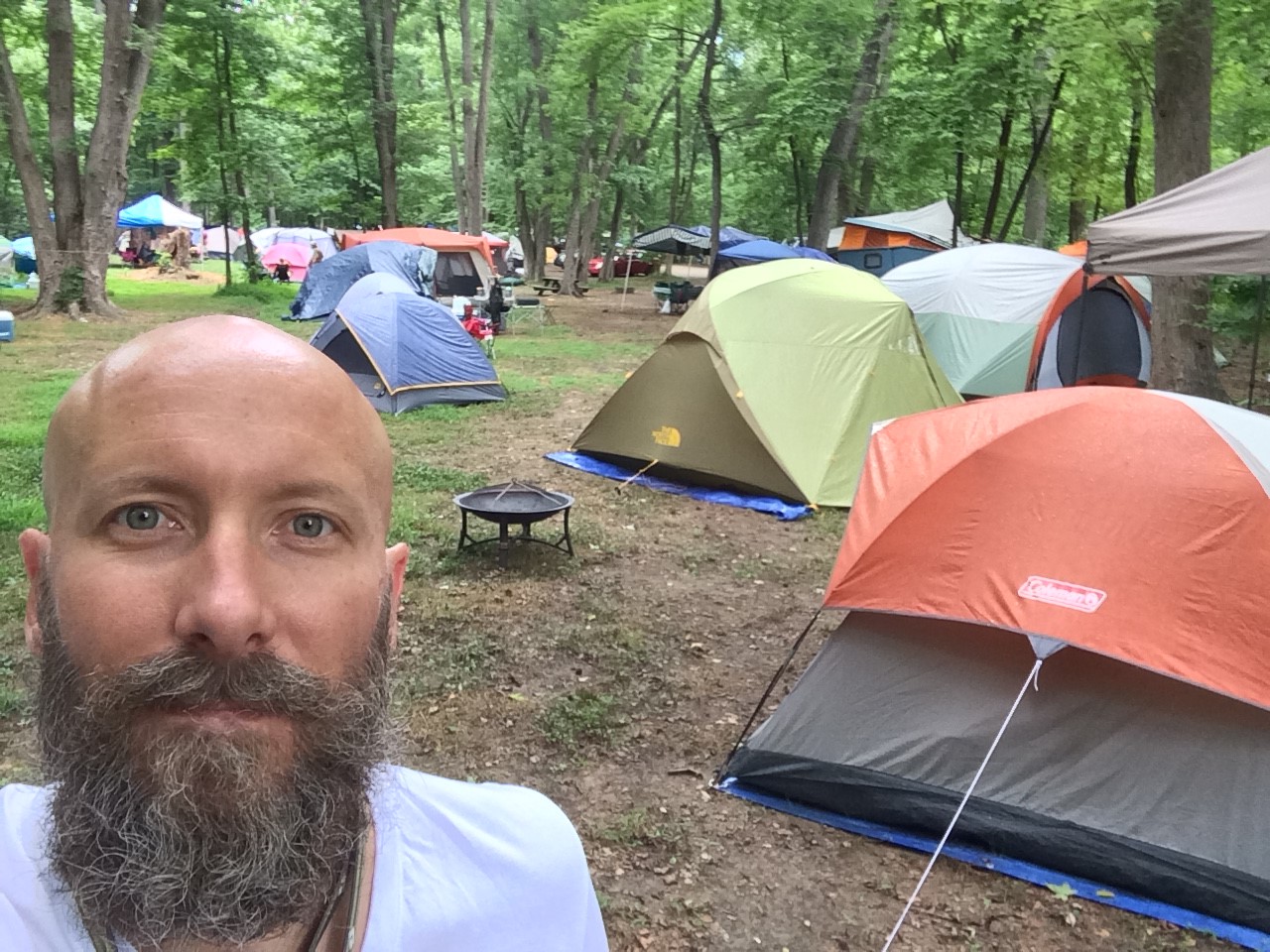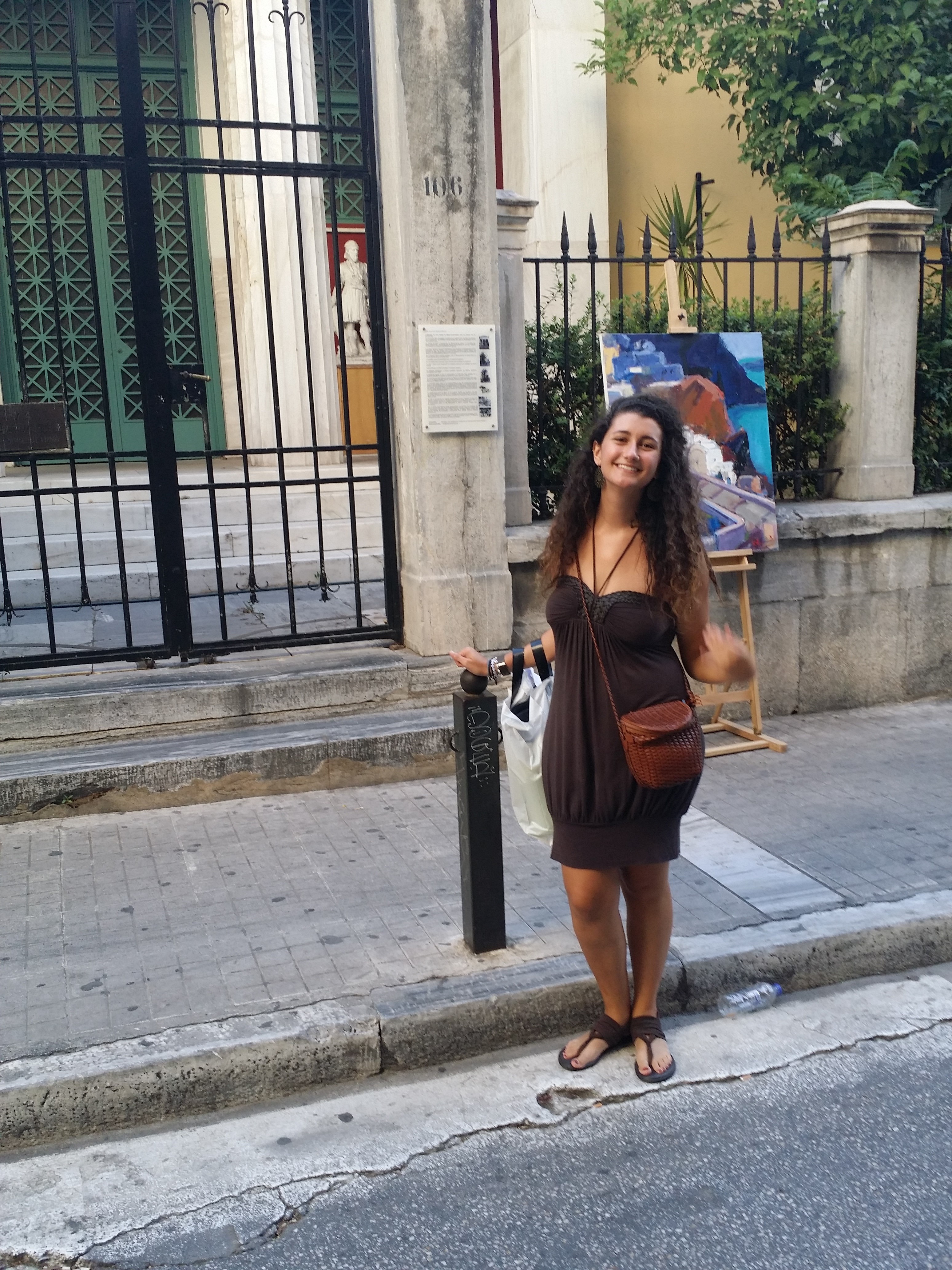Informed global citizens
ASU center gives students a chance to research, gain perspective on social and political issues around the world
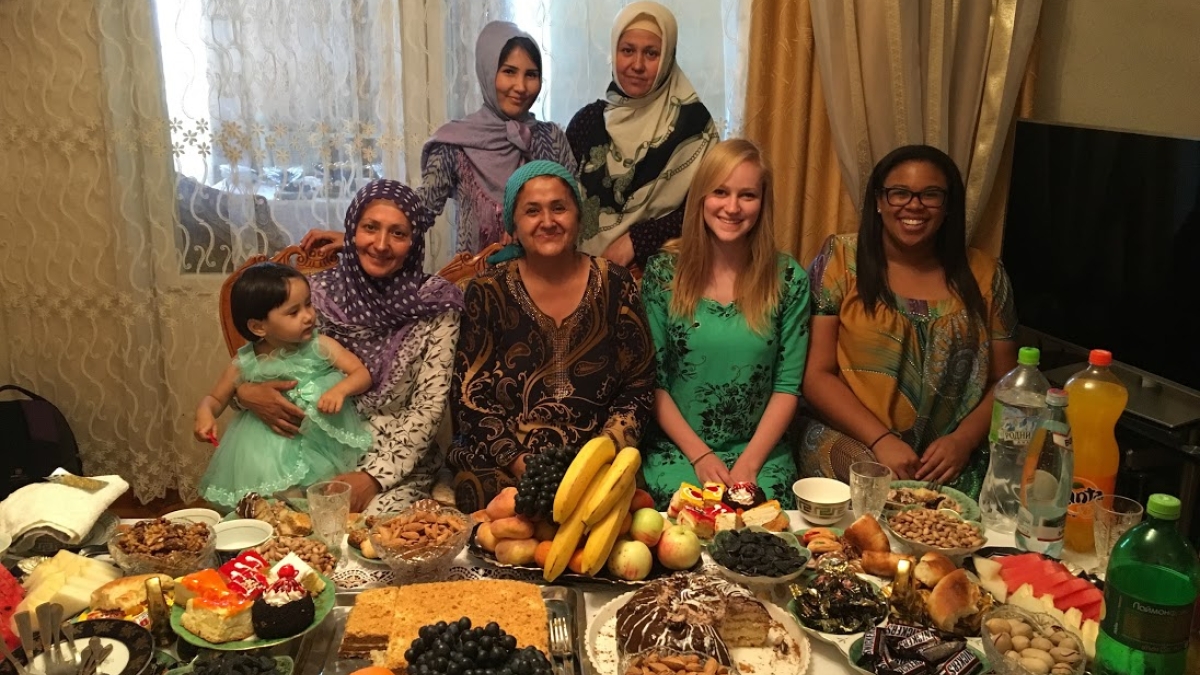
To better understand conflict and peace around the world, Arizona State University students spent their summers underneath the stars of the Appalachian Trail, in deserted Dushanbe cafes during Ramadan and huddled clandestinely in homes on the brilliant azure coast of Athens.
All the while, they were broadening their worldviews and developing a body of research that they'll continue adding to throughout their academic careers.
Their research was part of the Center for the Study of Religion’s Friends of the Center Awards. Completely donor-funded and open to all majors, the awards are bestowed each year to a handful of graduate and undergraduate students who have proposed research projects focused on religion, conflict and peacebuilding.
“These are fellowships that help students grow their ideas,” said John Carlson, associate director of the center.
Six graduate students and four undergraduates took to the road, learning about global issues and becoming more socially conscious. Here’s a closer look at what three of them experienced.
Dushanbe cafes
When ASU psychology undergrad Catie Carson heard about a summer program that would allow her to volunteer at an autism center in Tajikistan, she thought it’d be a great opportunity to combine her interests in mental health and social justice.
Working at the center — helping the children with daily activities like arts and crafts and cooking — came naturally. What took some time for Carson was adjusting to the pace of life.
“[In America] I’m very focused on time, getting things done, productivity, being busy,” she said. “There, it’s much calmer, much less driven by deadlines. You have more time to be with people and take things slow.”
Catie Carson (upper left) does arts and crafts with kids at an autism center in Tajikistan. Photo courtesy of Catie Carson
Learning more about the culture was just as rewarding for her as working at the autism center. After a morning of hands-on work with the children, Carson would spend afternoons advising teachers at the center on best practices and suggesting new activities to introduce into their curriculum — but they also spent a lot of time exchanging personal stories and photos.
“The service I was doing (at the autism center) … was important and helpful, but more important, I think, was the fact that we were able to show people there that there are people in the U.S. who really care about their country and the rest of the world,” said Carson, especially in light of recent events that may negatively color perceptions of Americans.
She added, “I now have a really solid experience of having met a lot of really wonderful people whose stories I can come back and share with people in the U.S.”
Appalachian Trail
Having grown up in the Bible Belt, Terry Shoemaker was no stranger to religion permeating local culture. Even though his family wasn’t particularly religious, the Kentucky-born ASU religious studies doctoral student recalls feeling “like an outsider” as he watched his friends go off to church camp for the summer and wanting to know more about it.
After a stint as a religious program specialist in the Navy facilitating the worship of his seafaring brethren, Shoemaker turned his sights to academia. Attracted to the unique approach ASU’s doctoral program took to studying religion, he made his way West, which he said also helped him gain some distance from the uber-Christian area where he grew up.
From that perspective, Shoemaker became fascinated by the development of a phenomenon wherein exceptionally progressive religious communities began springing up among more conservative ones. Armed with his Friends of the Center Award, he headed back to the American South to attend the Wild Goose Festival in Hot Springs, North Carolina, an annual gathering for such progressive religious communities.
Religious studies doctoral student Terry Shoemaker snaps a selfie at the Wild Goose Festival in North Carolina, an annual gathering for progressive religious communities. Photo courtesy of Terry Shoemaker
Shoemaker found himself instantly transported back to his childhood by Sunday morning preachers on the radio as he drove through Kentucky, Tennessee and North Carolina. But he also discovered things that surprised him: people who claimed to be Christian yet embraced gays or engaged in discussions about race relations.
“One thing I discovered was there are no resources on how to do this,” said Shoemaker of researching this particular subject. “No one has published anything” on how the people who live in the area of such paradoxical duality are dealing with the change.
There has been pushback against the more progressive groups from the more conservative, more established groups, resulting in rifts among individuals in the community who are sometimes related. Shoemaker wants to look further into how they’re dealing with that and how they can achieve resolution in his dissertation, for which he’ll be drawing on the interviews and firsthand experiences he collected this summer.
“I greatly appreciate the funding from the center and the Friends of the Center that has allowed me to do this,” he said.
Coast of Athens
ASU women and gender studies graduate student Viviane Linos grew up in Indiana but spent many of her summers with family in Greece, from which her parents had emigrated. When she was younger the trips were more about play than work, but this summer she returned for the latter.
Fueled by a desire to “amplify the voices of people who aren’t normally heard,” Linos started out with the goal of researching domestic violence and the role religion played in it. She quickly learned how difficult it was to obtain access to victims’ shelters, so she shifted her focus to the plight of domestic workers seeking citizenship, though that experience alone was a lesson learned:
“I learned that it was elitist of me to think coming from American university that I could get access to shelters and vulnerable populations in a different country. … It was a good, humbling experience for me to understand my place in the world.”
Women and gender studies graduate student Viviane Linos stops to pose for a photo on the way to an interview in Athens. Photo courtesy of Viviane Linos
With a new focus in mind, Linos turned her attention to the Greece’s growing population of female immigrants from Georgia, looking to escape political unrest and lack of economic opportunity as domestic workers in Athens. The women are largely undocumented, so when they experience abuse at the hands of their employers, it is especially difficult for them to obtain access to counselors or shelters.
“It’s not as easy as it is for citizens because of the risk of being deported,” said Linos. “There’s no strict consequences for that type of violence.”
Linos met with women at the homes of friends on their days off from work to learn more about their unique struggles. She’s planning to take what she learned and build on it for her master’s thesis, interviewing the women over Skype and collecting more data to hopefully help implement a solution in the future.
“It’s always important to shed light on people living in the shadows,” said Linos.
Though she was somewhat aware of what was going during her childhood visits to Greece, her trip there this summer as a Friends of the Center awardee allowed her to “put a critical lens on [the issue], using the tools and resources of my academic experience.”
Top photo: Catie Carson (bottom row, second from right) poses with a Tajik family as they celebrate the Muslim holiday Eid al-Adha, the "Sacrifice Feast." Photo courtesy of Catie Carson
More Law, journalism and politics
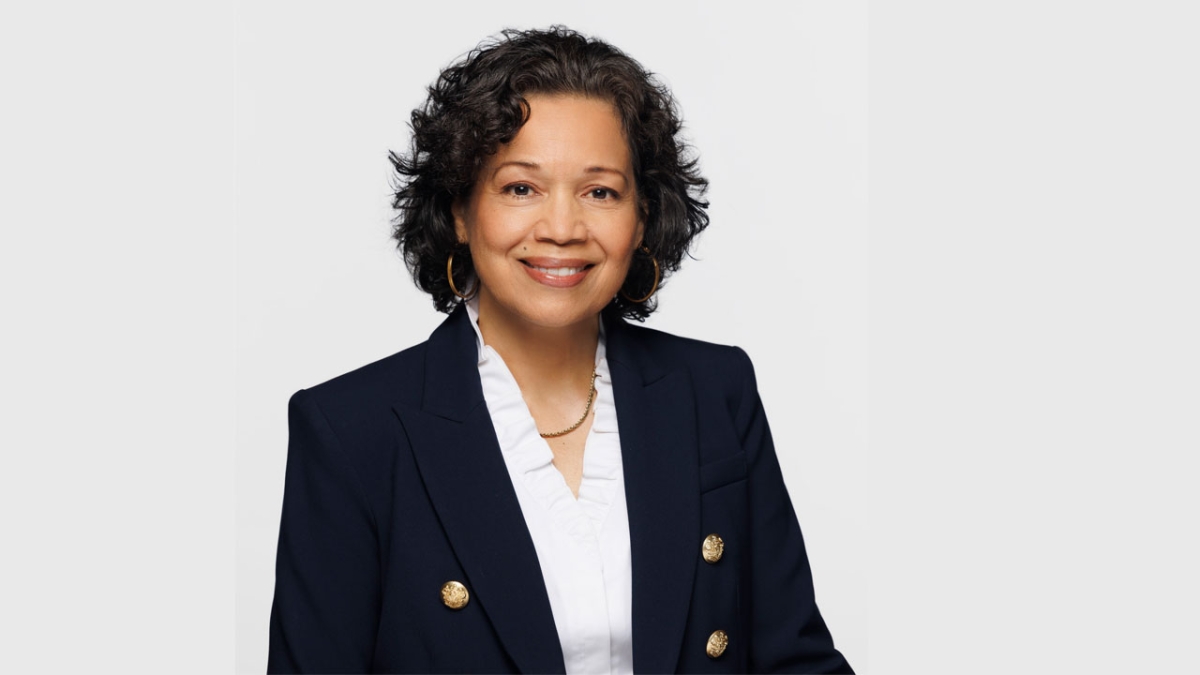
CBS News president to give keynote address at Cronkite School’s spring convocation
Ingrid Ciprián-Matthews, president of CBS News, will serve as the keynote speaker at Arizona State University’s Walter Cronkite School of Journalism and Mass Communication spring 2024 convocation. …
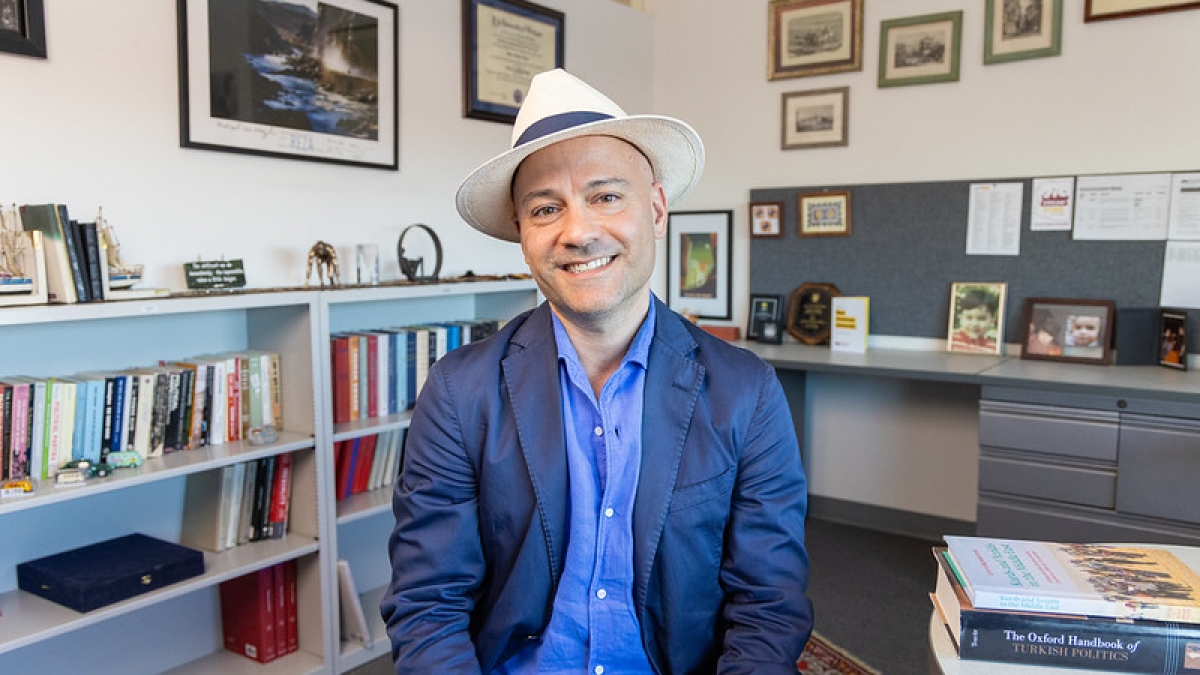
School of Politics and Global Studies director's new book explores mass violence
Why do people commit atrocities and why are certain groups, including religious and ethnic, more vulnerable to large-scale violence? These questions are explored in a new book by Güneş Murat Tezcür…
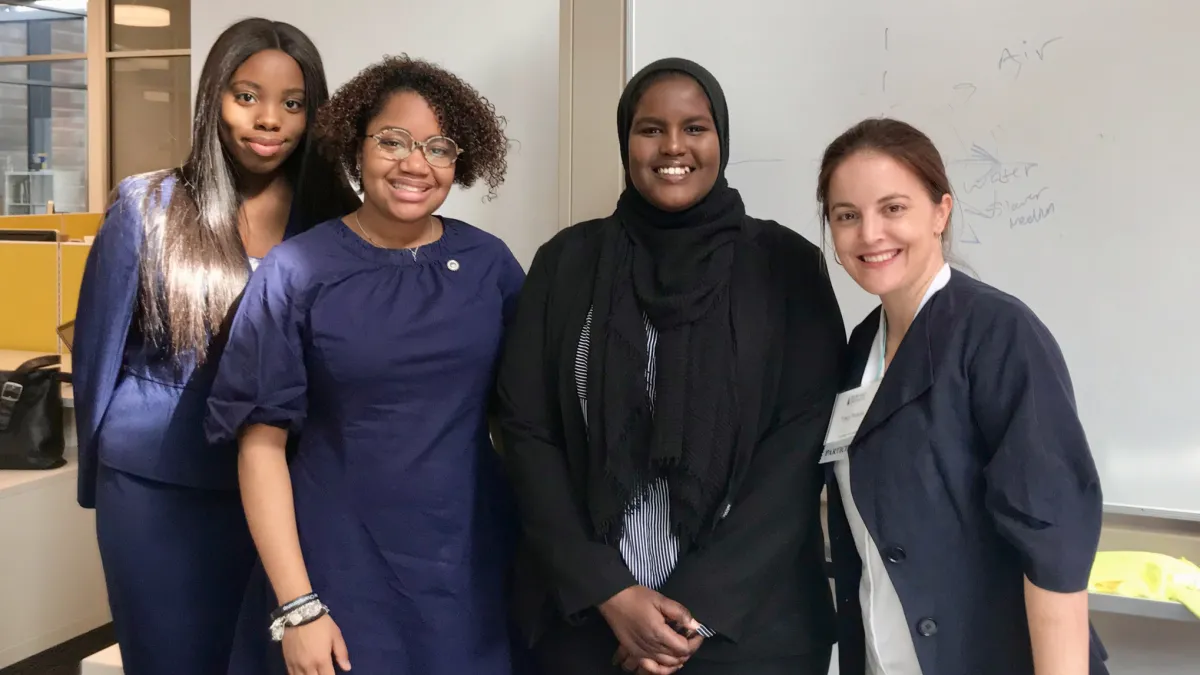
ASU faculty contributing to improvement of Wikipedia
Many academics have a love-hate relationship with Wikipedia. While the website has information about almost anything you can imagine, the credibility of that information is sometimes suspect. Tracy…
